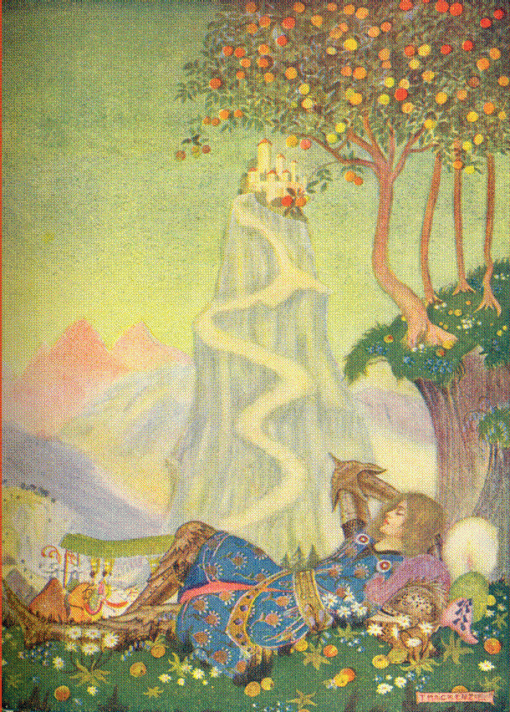 I’ve been reading the book The Trouble with Boys by Peg Tyre, published by Crown Publishing. This wonderful book, which is truly ‘fair and balanced,’ explores the question of why boys are falling behind girls in academic achievement. This book has led me to think about my own experience in school and beyond. I remember my first day of kindergarten. No kid wanted to go to school more than me. Unfortunately, by the time I left 4th grade I was turned off to school. I got by on talent and little work. I was so disenchanted by high school, where I majored in hitching to the ‘record store,’ that I could see no purpose for college. Today, 40 years later, I am writing at 6 AM on Sunday morning and I have my doctorate. What happened? Where did this discipline and passion come from?
I’ve been reading the book The Trouble with Boys by Peg Tyre, published by Crown Publishing. This wonderful book, which is truly ‘fair and balanced,’ explores the question of why boys are falling behind girls in academic achievement. This book has led me to think about my own experience in school and beyond. I remember my first day of kindergarten. No kid wanted to go to school more than me. Unfortunately, by the time I left 4th grade I was turned off to school. I got by on talent and little work. I was so disenchanted by high school, where I majored in hitching to the ‘record store,’ that I could see no purpose for college. Today, 40 years later, I am writing at 6 AM on Sunday morning and I have my doctorate. What happened? Where did this discipline and passion come from?
Fortunately for me, instead of going to college fresh out of high school, I became an apprentice at one of the world’s premier recording studios, A and R Studios in New York.
This was a rough place to grow up. New York in the 1970’s was an edgy place and the culture of the studio followed that midtown style, where people went to the Carnegie Deli for a pastrami sandwich and paid extra to be abused by the waiters.
The guys at A and R played hard and loud. It wasn’t uncommon to find these grown men screaming and throwing things at one another. A and R’s leader was one of the era’s truly great engineer/producers, the legendary Phil Ramone. Ramone was notorious for being brutally rough on his apprentices, and as each apprentice became a master, they trained the next generation in the same fashion. If the new kid screwed up, and they always did, they would get yelled at, cursed, thrown around. Not many could take it, but if you did, you became a member of the club. I went through it, took it, and gave it back. When I walked in at 16 I was a mess of a kid. 4 years later I was a master engineer working with the most demanding clients in the world, artists like Ray Charles and Frank Sinatra.
I always wondered if the training had to be so rough. Couldn’t I have learned the same lessons in a gentler way? But now that I have read The Trouble with Boys, I’ve been thinking about what was right with the kind of apprenticeship I had at A and R.
The reason I gave up on school was because I was disillusioned. What I longed for was a noble ideal to aspire towards, a reason to work hard. School did not provide this, but Ramone and his minions did. We were there to do the best. We were creating great art. Though we didn’t have the best equipment, we provided the greatest service to the musical geniuses we worked with. Our goal was to provide the ultimate environment where they could create at their peak. And it worked. For example, Billy Joel, until that time a floundering artist with a minor hit, created “The Stranger” and then an endless list of hits in the A and R milieu. We had pride in what we did. We could be arrogant jerks, but we earned it.
In this very male environment, we were all bonded by this common mission and approach. It was no joke that everyone there did whatever was necessary to make a great record. When I started out working in the tape library and got a call on Saturday morning to come in and find a tape for Burt Bacharach, Milton Brooks, the studio manager, had already been there for an hour. We were all in it together. The mores and rules were passed down with each new generation and shared by everyone. And the first rule was you did whatever it took to get the job done right.
Though the training often hurt, there was an amazing amount of loyalty that we felt toward each other. It might be hard to imagine in today’s world where we all want to try out a new restaurant every time we go out, but at that time clients stuck with you through it all. Arnold Brown, a “Mad Men” era music producer for the advertising agency, Dancer, Fitzgerald and Sample, would run me around in circles just for the purpose of driving me nuts, but he was willing to make an investment in the new guy, because he wanted someone there who he knew would do it his way and give him the quality product he demanded. The amazing group of top engineers on staff, guys like Don Hahn, Dixon Van Winkle, and Steve Friedman, stuck by their assistants while kicking their ass because that was how they had gotten the gift of their careers from Ramone, and they wanted to give back. There was enough work for everyone, and when Elliot Scheiner started working with Steely Dan he might not have time to work on a jingle, so he’d throw that gig my way.
So why did that experience change me so fundamentally? These qualities of a tradition, ritual behavior, a willingness to suffer pain in order to achieve an ideal, group bondedness and loyalty are all characteristics of an experience of initiation. This was a group of men who ushered young men who were willing to pay the price into manhood. It was the army, but instead of killing, we made great recordings.
Maybe this tells us what boys need to thrive. If initiation rituals that have existed since the dawn of time have anything to tell us, boys need to suffer to become men. But they need to suffer for a good reason, do it with a group of men bonded by this common goal, who have been through it and are invested in them becoming good, strong men. And it certainly is possible to do this for a better reason than war.
Young men crave this experience and hold it with them as something sacred for their entire lives. A few years ago I went to a party for Blue Jay Recording Studio in Carlisle, Massachusetts that I had helped start in 1980. Several men came up to me to meet the ‘legendary’ Glenn Berger. They had been trained by people who had been trained by someone who had been trained by me. I had trained those first guys in the way that I had been trained, to the exacting standards of Phil and A and R. I passed the legacy on. I had no idea that I had influenced any of these guys, and I was stunned to see the impact that this had had on them. They all had that fire and pride, that passion and discipline that was the true gift that I had gotten from the men who had initiated me. That might be a big part of the answer of what our boys need and what we men need to give to our sons.



![Reblog this post [with Zemanta]](https://i0.wp.com/img.zemanta.com/reblog_e.png)

 The way of devotion, or the bhakti marga, is getting some publicity in
The way of devotion, or the bhakti marga, is getting some publicity in  In my work as an ADD coach, I often hear my clients bemoan the fact that what comes easily to others is hard for them. The harsh reality is that they speak the truth. As no one of us can measure the suffering of another or truly compare it to our own, each person deserves the full measure of compassionate understanding. So it is important to my clients that I recognize that this is a painful frustration.
In my work as an ADD coach, I often hear my clients bemoan the fact that what comes easily to others is hard for them. The harsh reality is that they speak the truth. As no one of us can measure the suffering of another or truly compare it to our own, each person deserves the full measure of compassionate understanding. So it is important to my clients that I recognize that this is a painful frustration.